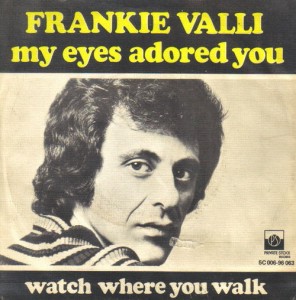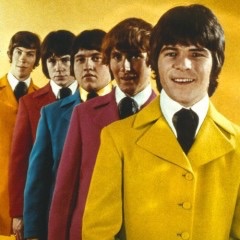Related Research Articles
Swan Records was a mid-20th century United States–based record label, founded in 1957 and based in Philadelphia, Pennsylvania. It had a subsidiary label called Lawn Records.
ABC Records was an American record label founded in New York City in 1955. It originated as the main popular music label operated by the Am-Par Record Corporation. Am-Par also created the Impulse! jazz label in 1960. It acquired many labels before ABC was sold to MCA Records in 1979. ABC produced music in a variety of genres: pop, rock, jazz, country, rhythm and blues, soundtrack, gospel, and polka. In addition to producing records, ABC licensed masters from independent record producers, and purchased regionally released records for national distribution.
Rock music in New Zealand, also known as Kiwi rock music and New Zealand rock music, rose to prominence first in 1955 with Johnny Cooper's cover version of Bill Haley's hit song "Rock Around the Clock". This was followed by Johnny Devlin, sometimes nicknamed New Zealand's Elvis Presley, and his cover of "Lawdy Miss Clawdy". The 1960s saw Max Merritt and the Meteors and Ray Columbus & the Invaders achieve success. In the 1970s and early 1980s the innovative Split Enz had success internationally as well as nationally, with member Neil Finn later continuing with Crowded House. Other influential bands in the 1970s were Th' Dudes, Dragon and Hello Sailor. The early 1980s saw the development of the indie rock "Dunedin sound", typified by Dunedin bands such as The Clean, Straitjacket Fits and The Chills, recorded by the Flying Nun record label of Christchurch. New Zealand's foremost hard rock band Shihad started their long career in 1988. Since 2018 this title is now undoubtedly held by New Zealand Māori metal band Alien Weaponry who have achieved huge success in Europe and the USA.

"My Eyes Adored You" is a 1974 song written by Bob Crewe and Kenny Nolan. It was originally recorded by The Four Seasons in early 1974. After the Motown label balked at the idea of releasing it, the recording was sold to lead singer Frankie Valli for $4000. After rejections by Capitol and Atlantic Records, Valli succeeded in getting the recording released on Private Stock Records, but the owner/founder of the label, Larry Uttal, wanted only Valli's name on the label. It is from the album Closeup. The single was released in the US in November 1974 and topped the Billboard Hot 100 in March 1975. "My Eyes Adored You" also went to number 2 on the Easy Listening chart. Billboard ranked it as the No. 5 song for 1975.
The Yandall Sisters were a popular New Zealand-born Samoan all-female singing group of the 1970s, who made a major contribution to music in New Zealand. The members of the group were Caroline, Mary and Adele Yandall, and later younger sister Pauline Yandall.
Ray Columbus & the Invaders were a New Zealand rock group from Christchurch that was active from 1964 to 1966. It was fronted by the lead vocalist, Ray Columbus. Part of the new surf music craze, they were the first New Zealand band to have a number 1 in another country, Australia, with their cover of The Senators' song "She's a Mod".

Raymond John Patrick Columbus was a New Zealand Benny Award-winning singer and songwriter, television host, music manager and entertainer, with a career spanning six decades. As the lead singer of surf music band Ray Columbus & the Invaders, his best-known hit was "She's A Mod" in 1964.
Larry Joel Henley was an American singer and songwriter, best known for co-writing the 1989 hit record "Wind Beneath My Wings".
Viking Records was an independent record label that featured many New Zealand and Polynesian recording artists.
Diane Marie Jacobs, known as Dinah Lee, is a New Zealand singer who performed 1960s pop and adult contemporary music. Her debut single from early 1964, "Don't You Know Yockomo?", achieved No. 1 chart success in New Zealand and in the Australian cities of Brisbane and Melbourne. It was followed in September by her cover version of Jackie Wilson's, "Reet Petite", which also reached No. 1 in New Zealand and peaked at No. 6 in Melbourne. The Australian release was a double A-sided single with "Do the Blue Beat". On her early singles she was backed by fellow New Zealanders, Max Merritt & His Meteors. Lee appeared regularly on both New Zealand and Australian TV variety programs, including Johnny O'Keefe's Sing, Sing, Sing and Bandstand. She toured supporting Johnny O'Keefe, as well as Ray Columbus & the Invaders and P.J. Proby. According to Australian rock music journalist, Ed Nimmervoll, in the 1960s, "Lee was the most successful female singer in both her New Zealand homeland and Australia ... on stage and on record Dinah had all the adventure and exuberance for the time the boys had".
The Loxene Golden Disc was an annual New Zealand music award which ran from 1965 to 1972. It was superseded by the Recording Arts Talent Awards (RATA).
Bunny Te Kokiri Miha Waahi Walters was a New Zealand singer who had a number of New Zealand hits during the 1970s. He is best known for the hits "Brandy" and "Take the Money and Run".

Larry's Rebels were a garage rock band, formed in Ponsonby, New Zealand, in 1964. The band had a relatively stable lineup, and had several nationally charting singles in New Zealand and Australia. Their musical genres ranged from blues rock to psychedelic pop, with lead vocalist Larry Morris having a versatile vocal range. The band later merged British Invasion and American musical influences into their repertoire.
RTC is a New Zealand record label which licensed recordings from overseas Independent labels in the United States and in the United Kingdom.

Stebbing Studios is a recording studio in Auckland, New Zealand. Artists who have recorded at the studio over the years include Ray Columbus & The Invaders, Split Enz, Gary Havoc & The Hurricanes, Th' Dudes, The Human Instinct, and Waves.
Nash Chase is a former pop singer from New Zealand who recorded for the Ode and HMV labels. He released a string of singles in the early 1970s. He is remembered for "What Greater Love", "Today I Killed a Man I Didn't Know" and "Anderson and Wise".
"Take The Money And Run" was a hit single in New Zealand for singer Bunny Walters, reaching no. 2 in 1972.
Home Isn't Home Anymore was a hit for Bunny Walters in 1973. It was his fourth top twenty single and followed "Take The Money And Run".
The Nearest Thing To Heaven was a sizable hit for Bunny Walters in 1974. It reached #10 in the New Zealand charts. It was also his last hit.
"Do What You Gotta Do" is a song that was written by Jimmy Webb. It was first recorded by Johnny Rivers and released on his 1967 album Rewind. In 1968, it was an R&B hit for Al Wilson. It was also a hit for Nina Simone that year and a local hit for New Zealand band Larry's Rebels.
References
- ↑ Ready to Fly, David Eggleton – Page 32
- ↑ AudioCulture, 28 April 2013 – Impact – Simon Grigg
- ↑ Billboard , 1 January 1966 – Page 37 Music Capitals of the World, Wellington N.Z. – John P. Monaghan
- ↑ Music.net.nz – Bunny Walters, Bio
- ↑ Billboard, 7 September 1974 – Page 55 Billboard Hits of the World, New Zealand